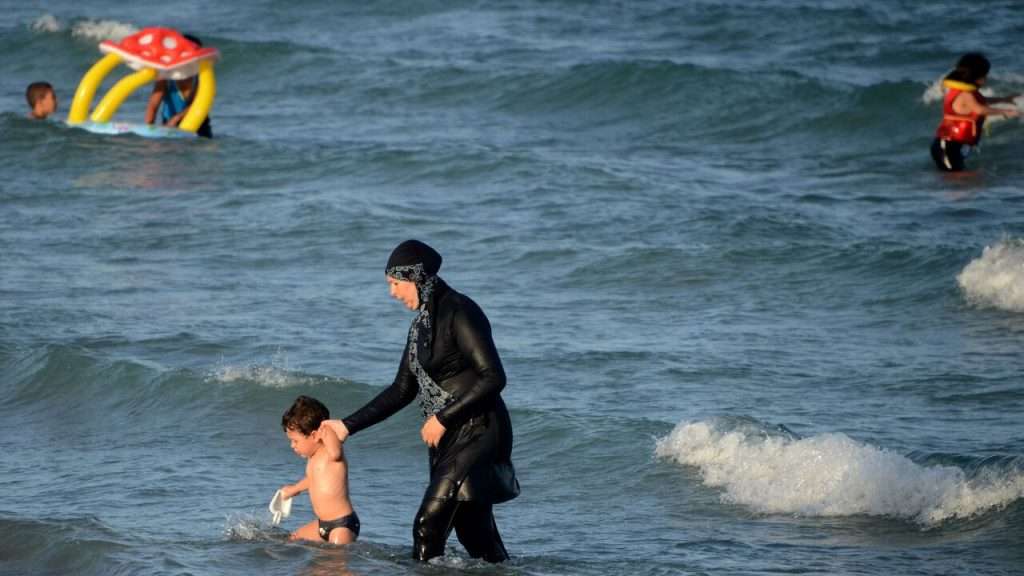Syrian women required to wear burkinis at public beaches

Syria’s interim government has mandated that women must wear burkinis or “decent” clothing at public beaches and swimming pools, the BBC reported on June 11th.
This was announced in a directive issued by the tourism ministry and reported by state news channel Al-Ikhbariyah al-Suriyah.
The rules were introduced to boost “public safety standards” and bolster “public decency,” but do not apply to private beaches, clubs, pools, or hotels rated above four stars. Women are required to wear a burkini or swimwear that covers more of the body, and to wear cover-ups or loose clothing when moving away from swimming areas.
“Travelling in swimwear outside the beach without appropriate cover is prohibited,” the directive states.
Men are also subject to new regulations, including a ban on being bare-chested outside swimming areas. They are instructed to wear shirts and dress modestly when not in the water.
The ministry added that standard Western swimwear is still permitted in exempted locations “within the limits of public taste.” Across public spaces, individuals are advised to wear loose clothing that covers shoulders and knees, and to avoid garments that are transparent or tight-fitting.
No enforcement mechanism or penalties were detailed in the directive, but the government said lifeguards and supervisors would be responsible for overseeing adherence.
The new rule has sparked mixed reactions. One woman from Idlib, told the BBC’s World Service OS programme that she could understand both sides of the debate. But she also said: “Some people and families don’t feel comfortable seeing or wearing too much exposed skin and I believe that is a valid perspective.”
Another woman, Rita, speaking from Damascus, voiced discomfort with the change. “We have no problem with the burkini itself, but it’s a problem with the concept that the government are controlling this,” she said. “Religious people could avoid those in bikinis. But this law makes us scared of where to go.”
The directive comes months after rebel leader Ahmed al-Sharaa ousted Bashar al-Assad’s regime in December, ending years of civil war. In March, al-Sharaa signed a constitutional declaration stating that Islamic jurisprudence is “the main source of legislation,” while also guaranteeing women’s rights, freedom of expression and press freedom.
BBC
Want to chase the pulse of North Africa?
Subscribe to receive our FREE weekly PDF magazine













